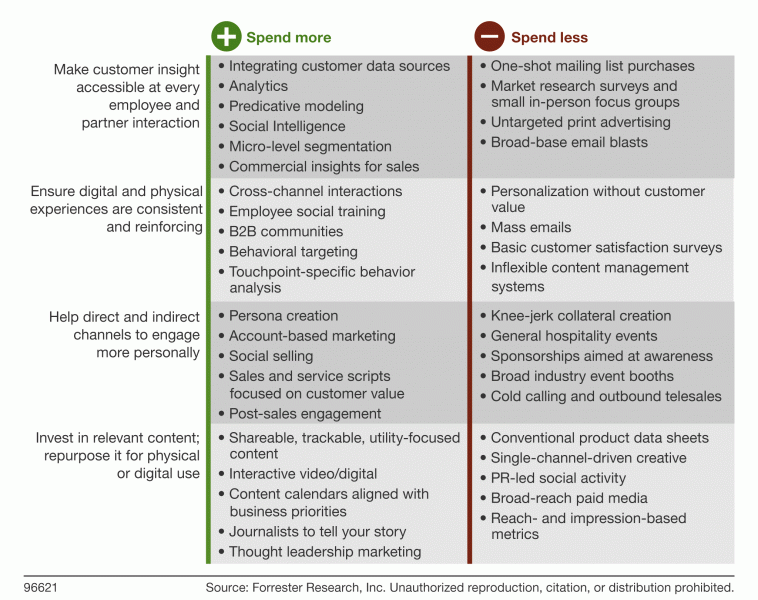Survive Or Thrive: Which Will B2B Marketers Do In The Age Of The Customer?
Earlier this year Forrester analyzed recent economic and survey data and reviewed the practices of over a dozen companies that have made customer-focused transformations.  We found that customers are now more mobile, consume more reviews, and buy more online than ever before.
We found that customers are now more mobile, consume more reviews, and buy more online than ever before.
So do B2B buyers.
Business buying habits have followed closely in the footsteps of B2C counterparts because, outside of "9 to 5", business buyers are consumers too.
Together with Internet Retailer, we found 59% of B2B buyers and sellers prefer not to interact with a sales rep and 74% find buying from a website more convenient.
To better address the changing expectations and omnichannel appetites of these empowered business buyers, B2B marketers need to think about spending their marketing budgets, energy, and resources in different ways. With budgeting season upon us, it's time to make sure your 2016 plans will keep you thriving in the digital age, not striving to keep up.
In recent research, Forrester's B2B marketing research team points out the four big bets B2B marketers need to make. In this digital age where customer demands and experiences take precedence over all other ways to achieve and maintain competitive advantage, it's time for you to:
- Make customer insights accessible to every employee – and partners – to enhance their interactions. B2B analytics must transform from operational systems focused on activity reporting and managing sales coverage to systems of insight that distill meaningful insight — gained by tracking how buyers interact with your messages, content, and each other — and presents it in a readily consumable format.
- Ensure digital experiences are consistent with, and reinforce, traditional physical ones. While business negotiation and selling relies on face-to-face interactions, buyers now expect their cross-channel, cross-departmental interactions to be seamless, error-free, and consistent — delivered with as much human touch as a handshake. B2B marketers now need to spend and act cross-functionally to ensure omnichannel experiences are consistent with your brand promise.
- Help direct sales teams and indirect channel partners engage in more relevant, personal ways. Mobile technology has transformed the way people think — a trend we call the mobile mind shift – and how they solve problems and answer questions. B2B marketers need to not only arm sales and channel partners with mobile-enabled content and narrative, but give them a leading role during the early Discovery stage when buyers are forumlating their options — online.
- Invest in producing more customer-relevant content that can be repurposed for physical or digital uses. In the online world, content generates attention and conversation, and publishing richer, more tailored marketing content earns you more attention. Because time-pressed and multitasking buyers snack on your content a little at a time, B2B marketers need to make it more engaging and available in various formats across multiple channels.
